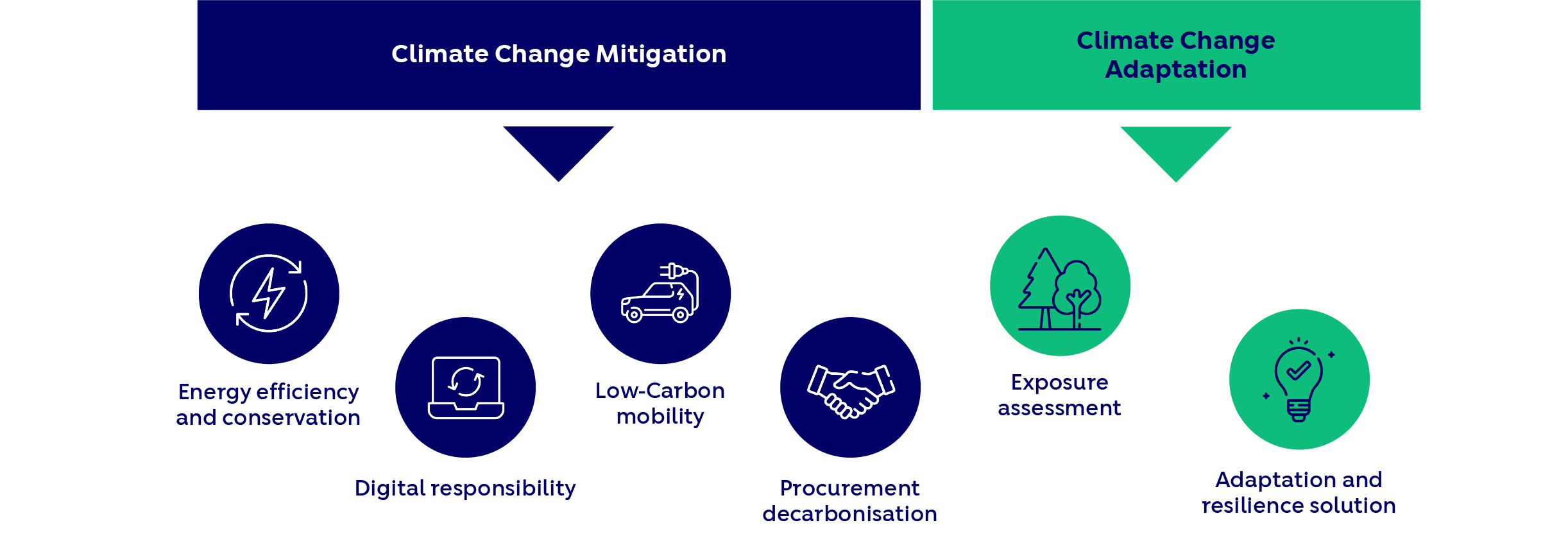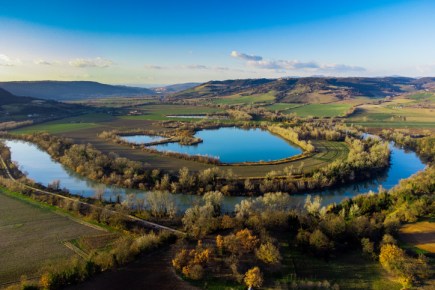Climate
Reducing our carbon footprint across the entire value chain

Our Climate ambitions
We have set the following objectives:
- To reduce our carbon footprint across the entire value chain by engaging employees, partners, and suppliers.
- To contribute meaningfully to the fight against climate change and assume a leadership role within our industry.
- To adapt to climate-related risks by strengthening the resilience of our operations and the entire value chain.
| 2025
“Well below 2°C” Trajectory |
2030
1.5°C trajectory |
2050
Net-Zero trajectory |
|
|
|
Climate
Key figures
* La Française des Jeux and its French subsidiaries, PLI and Kindred
-
184 835 tCO₂e emitted in 2024*
-
29 257 MWh of energy consumed in 2024, of which 71% from renewable
Climate
Our main levers for action
Fully aware of our carbon footprint, we have defined a Climate Policy based on an assessment of our greenhouse gas emissions and structured around an approach that addresses both climate change mitigation and climate change adaptation.

Climate change mitigation
« Our challenge: reduce the Group’s carbon footprint»
We are committed to significantly reducing our direct and indirect greenhouse gas emissions in the short (2025), medium (2030), and long term (2050). To achieve this, we have defined a decarbonisation trajectory as part of a transition plan, covering both our own operations and our supply chain.
Our four priority areas for climate change mitigation:
|
Energy efficiency and conservation |
Digital responsibility | Low-Carbon mobility | Procurement decarbonisation |
| In compliance with the tertiary sector decree, we are committed to reducing our energy consumption in the metropolitan area by 40% by 2030. To support this goal, we launched an energy-saving plan in 2022 aimed at reducing energy use in our buildings, digital systems, and employee travel.
Between 2022 and 2024, we recorded a 2,819 kWh reduction in our electricity consumption. |
We are committed to reducing our ecological and social digital footprint, an ambition that has resulted in the deployment of a dedicated operational roadmap.
We are also a member of the French Tech Corporate Community, a government-led initiative, and have signed the charter on “Rules of digital use for digital sobriety”. |
We are taking action to promote more responsible mobility, aligned with ecological transition goals and the preservation of natural resources.
To this end, we are working to transition our vehicle fleet to electric models and encourage remote working practices to reduce employee travel. |
Aware of the importance of decarbonising purchasing to achieve our goals, we launched the #BuyForGood program in 2023.
This program aims to support our suppliers in defining plans to reduce their carbon footprint, by adopting responsible practices and working together to design appropriate solutions. |
Climate change adaptation
«Our challenge: Strengthen the resilience of the Group’s operations and assets to climate-related risks»
We have defined climate change adaptation as a strategic focus of our Climate Policy. In line with the recommendations of the Task Force on Climate-related Financial Disclosures (TCFD), we have developed an analytical framework that allows us to assess our exposure to both physical and transition risks, and to identify suitable adaptation solutions to safeguard the continuity and long-term resilience of our operations.
- Exposure assessment: We have developed a climate risk and opportunity mapping covering our supply chain, our own operations, and our downstream activities, in order to identify areas exposed to physical hazards.
- Adaptation and resilience solution: Based on detailed risk analysis, we define adaptation and resilience solutions (e.g. mitigation plans) aimed at securing our exposed assets and guaranteeing business continuity.

Biodiversity
Making a positive contribution to biodiversity preservation
The sustainable management of natural living resources and the conservation of biodiversity are essential to ensure the long-term viability of ecosystems on which both human life and economic activity depend. We recognize the need to adopt sustainable practices in managing natural resources and to actively contribute to ecosystem restoration, by aligning our actions with the Kunming-Montreal Global Biodiversity Framework and the French National Biodiversity Strategy.

resources
Ensuring sustainable use of resources
The intensive exploitation of natural resources, whether raw materials, packaging, or water, is a major driver of pressure on ecosystems. In response to rising global demand and resource scarcity, a transformation of production and consumption models is necessary.
